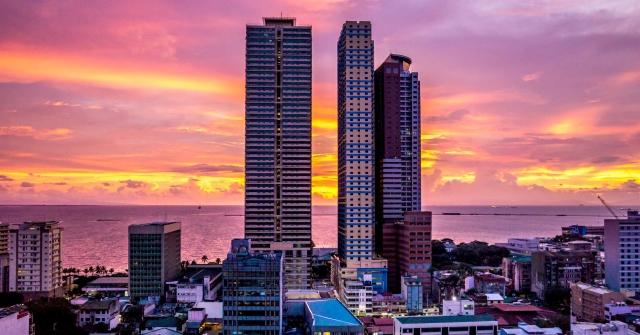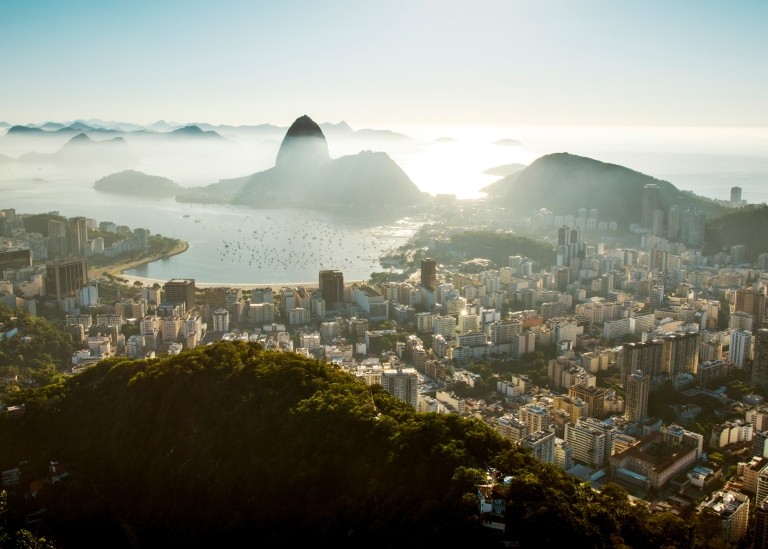In today's economy, companies continue to successfully expand into international markets for a variety of reasons. From tapping into new talent pools to growing your customer base, businesses of any size should consider how a global expansion can help take their business to the next level.
However, finding the right market in which to expand is crucial. The Philippines business climate was on a strong growth path in 2017, and remains on the same trajectory in coming years, making it a market that expanding businesses shouldn’t overlook. Learn more about the country's economy and if it would be beneficial to explore for your expanding business.
General Philippines Business Climate
The Philippines is proving to be one of the most dynamic growth countries in the Asia-Pacific region. With an economic expansion of 6.8% in 2017, it has outperformed other up-and-coming economies in the region, such as Vietnam, Malaysia, Thailand, and even China. Coupled with a general rebound for the region, The Philippines is a market with significant overall potential.
Like other countries with rapid growth, the poverty rate in the Philippines is declining quickly, which means that domestic demand continues to rise. Additionally, a richer, more educated population produces higher skilled workers with more opportunity for growth. The Philippines is not just an exporter, but a growing local market, as well.
Major Industries in The Philippines
PWC's report, Finding Your Way: Doing Business and Investing in the Philippines, provides an in-depth description of recent trends in the Philippines. The report shows several major industries that are driving growth in the country:
- Business Process Outsourcing
- Mineral and Energy Extraction
- Agriculture and Forestry
- Manufacturing (specifically food processing, electrical machinery, coal, petroleum, chemicals, beverages, and apparel)
- Technology
The Political Climate
PWC reports that the government’s stance toward business is generally positive. The Philippine Development Plan: 2017 - 2022 identifies the government’s priorities in the near future. The country has adopted a growth strategy to help bring its population out of poverty and grow into a major power player.
In particular, the National Competition Plan provides for increased opportunities and easy entry into the Philippines. The goals for the plan are:
- Penalize anti-competitive practices
- Facilitate entry into the market for new players
- Regulatory reform to stimulate investment
The Philippines is committed to promoting economic growth through market-based forces that have brought wealth to the developing world.
The political climate is also a challenge, however. Since taking office in June of 2016, President Rodrigo Duterte has proved to be a brutal leader. Additionally, the death of democracy has increased corruption in the country.
Economic Zones
The Filipino government has established several special economic zones throughout the country where they provide special incentives. Goods imported into these zones are not subject to taxes or duties as long as they remain inside the zone. Businesses are taxed at 5% of gross income in lieu of all other taxes. New export companies may receive a tax holiday for up to eight years from the beginning of their operations.
Major Employment Regulation
Like any country, the Philippines has a complicated set of labor protections that you should know before entering the market. Here are some of the most important regulations:
- The government provides incentives for certain classes of employees, focusing on disabilities and employers in the economic zone.
- The Philippines has a minimum wage, but it differs by industry. Apprentices and disabled employees may be paid as low as 75% of the applicable minimum wage.
- The Data Privacy Act law prescribes data privacy and security measures for the private sector to ensure that employees’ data is kept confidential. Penalties range from P100,000 to P5,000,000 and six months to seven years in prison for violations.
Like much of the developing world, the Philippines is an exciting and dynamic market; but it also comes with many challenges. The nation focuses on encouraging growth and a pro-business regulatory environment, but political strife and corruption may present future barriers to economic freedom. If trends continue, however, the Philippines will see strong growth for many years, making it a great site for international expansion.
Expand Internationally with Ease
If you’re considering expanding into the Philippines business climate, consider working with an experienced partner. Velocity Global’s team of global experts provides premium end-to-end service and acts as your go-to global expansion partner to ensure your organization has a positive experience. Our global Employer of Record solution helps you hire employees in 185 countries, including the Philippines, without having to establish or maintain a foreign legal entity. Contact us for more information.
Topic:
Global Growth



